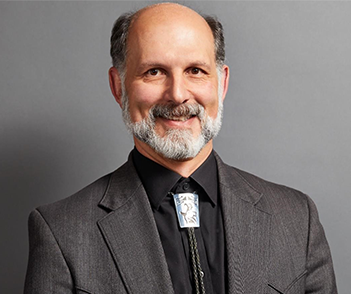Fresenius Medical Care is driving innovation and transformation in kidney care. The company’s strategy embraces both internal research and external investment in regenerative medicine, organ transplant, and organ recovery/revitalization. By working with partners that include Humacyte, eGenesis, and Unicyte, Fresenius Medical Care is increasing the potential for meaningful change and a dramatically improved quality of life for patients with chronic kidney disease (CKD) and end stage kidney disease (ESKD).
Healthcare delivery and operations are constantly evolving, but meaningful change and improvement require innovation and transformation. As the leading provider of dialysis products and services, Fresenius Medical Care has an obligation to continuously improve the standard of care for the treatment of CKD and ESKD. Fresenius Medical Care approaches innovation through the dual pathways of original research and third-party collaborators and investments.
Some of Fresenius Medical Care’s most promising external investments are in new and evolving areas such as regenerative medicine, organ transplant, and organ recovery/revitalization. Each of these technologies has the potential to substantially transform the care of individuals with ESKD, ultimately holding the promise to significantly change and improve kidney replacement therapies. Examples of Fresenius Medical Care’s promising partnerships include Humacyte, eGenesis, and Unicyte.
Humacyte is developing a universally implantable regenerative human acellular vessel (HAV), which can be used for the creation of a dialysis access for the treatment of peripheral arterial disease and for emergency vascular repair and reconstruction following traumatic injury. Humacyte uses a proprietary manufacturing process to grow the HAV from human smooth muscle cells in a bioreactor over a period of three months, with decellularization at the end of the process. Once surgically implanted, the HAV’s regenerative characteristics permit repopulation and recellularization of the HAV with the recipient’s own cells. Host cell repopulation of the HAV re-creates living tissue, fully a part of the individual, without complications associated with rejection.
For individuals undergoing maintenance dialysis, this means that complications related to conventional vascular access types (e.g., poor maturation of AVFs, infection of arteriovenous grafts) may be significantly reduced. Furthermore, the HAV provides an alternative vascular access option, which may be advantageous for home- or self-cannulation due to its subcutaneous, easily accessible positioning.
FIGURE 1 | Humacyte process for generating universally implantable regenerative human acellular vessel
Xenotransplant technology developed by eGenesis, a company in which Fresenius Medical Care has also invested, is another potentially disruptive technology. For most patients, kidney transplantation is often the preferred treatment for ESKD. Unfortunately, the need for kidneys for transplantation far exceeds the available organ supply. While policy makers and communities around the world are focusing more on increasing the availability of donated kidneys, that is unlikely to address the need. Xenotransplantation, transplanting kidneys from one species to another (e.g., a pig donor organ transplanted into a human), may offer a solution to overcome the shortage of transplantable human kidneys.
eGenesis has developed a technology that promises to transform the field of transplantation by offering reliable and effective organs. The company utilizes cutting-edge gene editing technologies to address the key issues — immune response and viral infection risk — that have impeded xenotransplantation to date. eGenesis’s development pipeline includes programs for kidney and islet cell transplantation as well as earlier-stage programs focused on other solid organs.
Producing compatible and highly available xenogeneic organs could transform the field of transplantation.
Unicyte is a company with three established technology platforms: allogeneic human liver stem cells, nano-extracellular vesicles/exosomes, and organoids (islet-like structures). Pre-clinical and preliminary clinical data indicate a curative effect of the platforms. Potential therapeutic applications are promising and broad, spanning the fields of nephrology, endocrinology, hepatology, and oncology. Specific diseases that may be treated using this innovative therapy include CKD, acute kidney injury, diabetes (type 1 in particular), nonalcoholic steatohepatitis, urea cycle disorders, inherited metabolic liver disorders, hepatocellular carcinoma, and renal clear-cell carcinoma. Pre-clinical work is ongoing, and clinical development is starting in 2021.
For the treatment of kidney disease, nano-extracellular vesicles are of particular interest as they may potentially delay disease progression and may even partially regenerate the organ and revitalize its original function. Unicyte has the potential to provide breakthrough medical therapies.
FIGURE 2 | Unicyte manufacturing process based on standard platforms established in regenerative medicine and biologics
LOOKING AHEAD
Each of the above-showcased investments has the potential to transform the current standard of care for CKD and ESKD and beyond. Humacyte will be the first to market, proving that an in-vitro manufactured organ can be implanted without triggering an immune response and, once implanted, can evolve into the patient’s own vascular structure based on its regenerative capabilities. eGenesis is exploring the concept of xenotransplantation to create sufficient global supplies for not only kidneys but also a variety of organs. Unicyte’s approach is illustrating the potential to stop disease progression and possibly regenerate a kidney or liver.
It is often a long and uncertain path from an idea to an approved product. But to constantly rethink, reimagine, and reinvent its business, products, and services are key cultural aspects of a true industry leader. It is Fresenius Medical Care’s strategic mandate to remain the driver behind an ever evolving and improving standard of care for the treatment of CKD and ESKD. Whether it’s through continued incremental technical improvements or disruptive innovation — or through thoughtful optimization of the organizational structure or fundamental transformation of “care enablement” and “care delivery” models — Fresenius Medical Care is embracing constant change as a core cultural aspect. Furthermore, staying ahead of the curve requires visionary choices backed by long-term funding, a deep entrepreneurial talent pool, and strong governance.
This forward-looking culture — combined with the ability to act as a catalyzer for breakthrough technologies and consequently shorten their time to market — makes Fresenius Medical Care’s approach to innovation and transformation unique.
FIGURE 3 | eGenesis conducts research into solid organ xenotransplantation; kidney and islet cell transplantation; and liver, heart, lung, and cell therapies.

